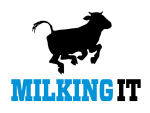Open Country Dairy is telling suppliers that they will be paid between $7.50 to $7.80/kgMS for milk supplied between February and May. Last month it was forecasting between $8 to $8.30/kgMS.
If the current forecast holds, then Open Country suppliers will end up receiving $8.33/kgMS for their milk this season.
New Open Country chief executive Mark de Lautour, writing to shareholders for the first time in the company's monthly newsletter, says this is not the news he would like to communicate.
However, he says it is a timely reminder that this is a tough business.
"And we should all look to take a very prudent look at our day-to-day costs."
De Lautour told farmer suppliers that there had been significant declines on Global Dairy Trade (GDT) auctions. Last week's GDT recorded its first rise in five auctions. However, despite the rise, overall prices remain 6.1% down since the start of the year.
"While Open Country doesn't sell on the GDT platform, these auction events tend to set the sentiment with buyers globally," de Lautour says.
"A major factor triggering these results was the addition of a significant volume of milk powder to the platform at a time of the year when buyers were expecting volumes to fall.
"This has made buyers assume that there are high levels of unsold inventor around and [they] are therefore waiting on the expectation that prices will be lower going forward. Buyers can afford to wait with demand dropping as global inflationary pressure reduces expendable consumer income.
"At the most recent event, many non-China buyers stepped away, so while Chinese buyers maintained their buying levels, they made up over 70% of the bids and prices dropped significantly."
This month, Fonterra also reduced its farmgate forecast range for the season by 20c to a new range of $8 to $8.60/kgMS.
The co-operative says short-term demand for products that inform its farmgate milk price was softer than expected.
Last week's GDT saw a solid price rise - the price index rose 3.2%, while key whole milk powder (WMP) prices lifted 1%.
Westpac senior agricultural analyst Nathan Penny says skim milk prices led the rises, surging 7%. Milk fat and cheddar prices also jumped, with butter, anhydrous milk fat and cheddar posting price increases in the 5% range.
He says the result was well above expectations.
"The result breaks a run of four consecutive price falls. However, despite the rise, overall prices remain 6.1% down since the start of the year."
Also, coming late in the season, the result also doesn't change the outlook for this season's milk price.
Penny says Westpac is sticking to price forecast of $8.30/kgMS but adds that the latest GDT price rise bodes well for the new season.
"It does bode well for our positive outlook for next season, albeit it is still very early days.
"As you'll recall we anticipate that as the Chinese economy gains momentum over the course of the year, following its reopening, we expect improved Chinese demand will lift global dairy prices.
"And very subdued global milk supply will provide additional support for prices."
Westpac is forecasting an opening milk price of $10/kgMS for 2023/24 season. Open Country is forecasting $8. Fonterra will release its forecast milk price for the season next month.



















